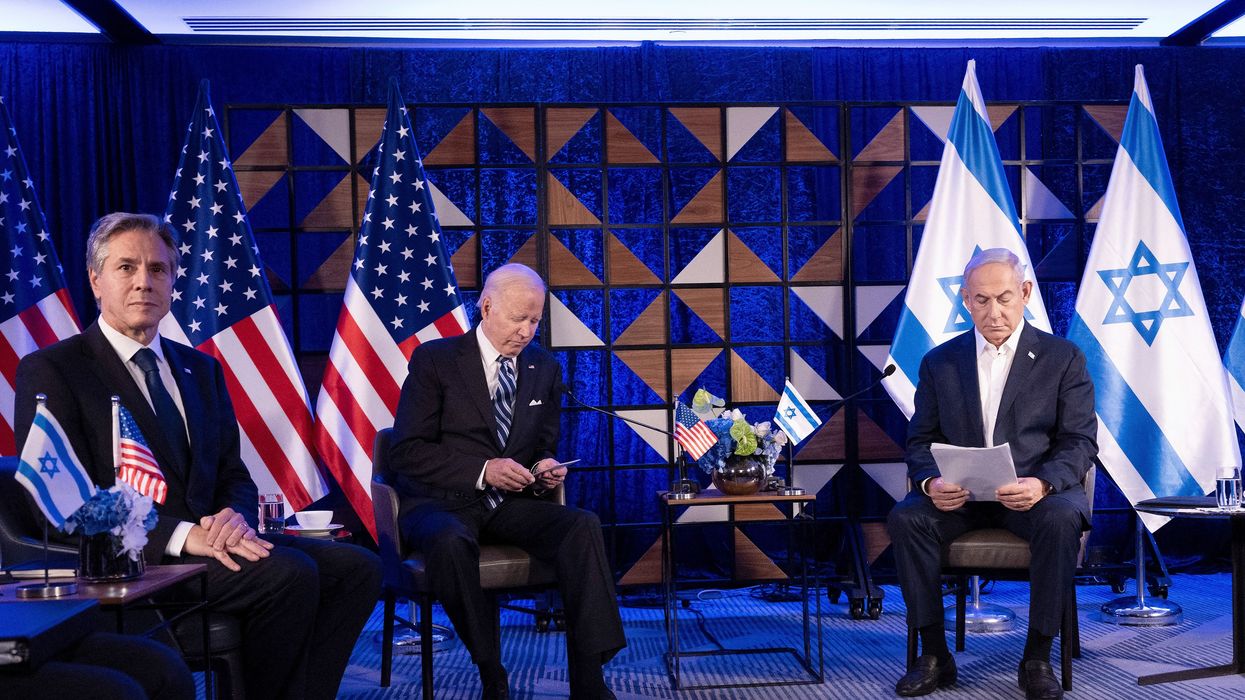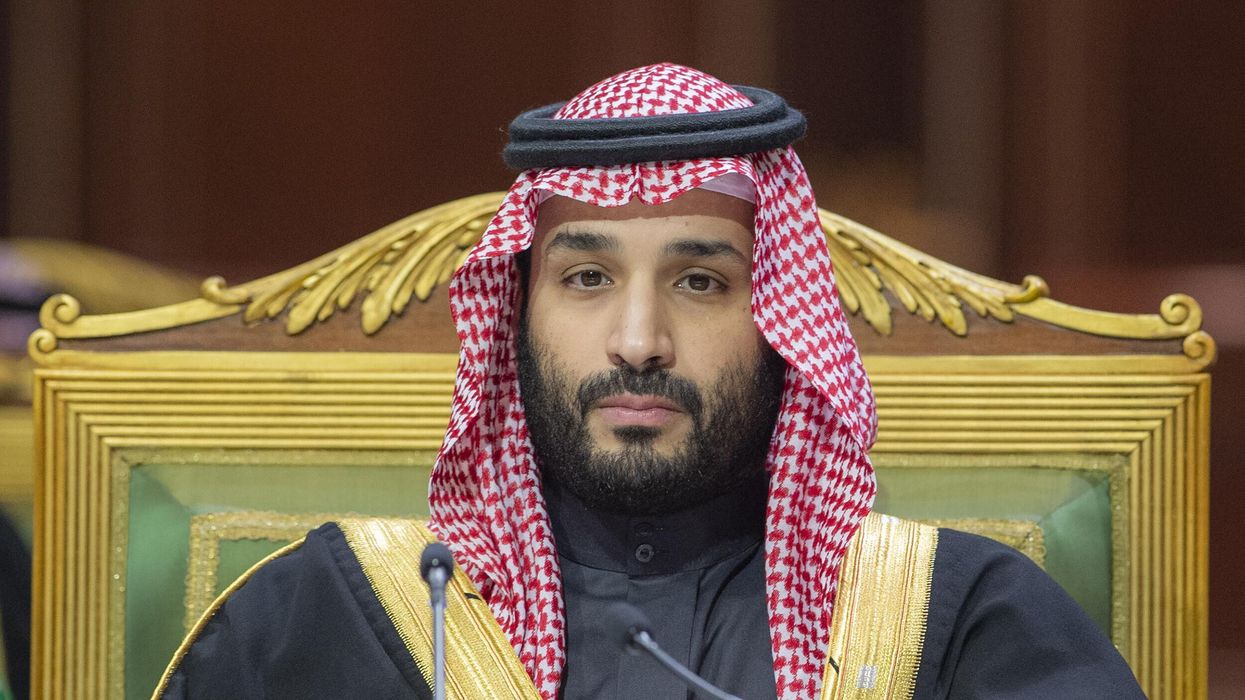Biden Taps 'Literal Arms Dealer' Mira Resnick for Top Israel Policy Post
"Genocide Joe's swan song is to institutionally entrench our support for Israel and make it as difficult as possible to disentangle it," lamented one observer.
Peace advocates on Friday voiced alarm over the Biden administration's selection of a senior official who has worked to speed the shipment of U.S. arms to Israel as the State Department's point person on Israel-Palestine policy.
HuffPost reported that Mira Resnick, the deputy assistant secretary of state for regional security in the Bureau of Political-Military Affairs, has been tapped to oversee Washington's handling of issues related to Israel and Palestine. In her current role, Resnick's office supervises around $40 billion in annual U.S. arms transfers.
Using a critical nickname for U.S. President Joe Biden, journalist and podcast host Emma Vigeland said on social media Friday, "Genocide Joe's swan song is to institutionally entrench our support for Israel and make it as difficult as possible to disentangle it, which the old fool views as romantic and righteous."
Over the past 10-plus months, the Biden administration has approved more than 100 arms sales to Israel worth billions of dollars. Earlier this month, the administration greenlighted a new $20 billion arms package for Israel.
The announcement of the package—which includes dozens of F-15 fighter jets, tens of thousands of 120mm mortar shells, over 32,700 tank shells, and 30 advanced missiles—came just days after Israeli forces used at least one U.S. bomb in an airstrike on a Gaza school where forcibly displaced Palestinians were sheltering, killing more than 100 people including women and children.
As criticism mounted over Israel's assault and siege on Gaza—which has left more than 144,000 Palestinians dead, maimed, or missing and has flattened most of the coastal enclave while stoking deadly famine and the spread of preventable diseases including polio—Resnick helped expedite the flow of U.S. arms to the key Middle Eastern ally.
She also worked with the far-right government of Israeli Prime Minister Benjamin Netanyahu, who International Criminal Court Prosecutor Karim Khan wants to arrest for alleged war crimes including "extermination," to allow private citizens to donate equipment to the Israel Defense Forces.
Annelle Sheline, a former State Department official who resigned earlier this year over Biden's support for Israel amid a war for which the key ally is on trial for genocide at the International Court of Justice, told HuffPost that Resnick's appointment "reflects a doubling down on the administration's determination to continue to provide unconditional material support for Israel's genocidal campaign against civilians in Gaza."
American University of Beirut history professor Zeead Yaghi decried the Biden administration's appointment of "a literal arms dealer."
Last month, the Biden administration ended a two-month pause on the shipment of 500-pound bombs to Israel despite the frequent use of U.S.-supplied weapons by Israeli forces to commit alleged war crimes and genocide in Gaza. Biden has suspended transfers of 500- and 2,000-pound bombs manufactured by aerospace giant Boeing over fears the devastating munitions would be used in airstrikes on Rafah, the southern Gaza city where more than a million Palestinians had sought refuge.
Israel has dropped at least hundreds of 2,000-pound bombs—which the U.S. military avoids using in civilian areas because they can destroy entire city blocks—on Gaza, including in an October 31 attack on the densely populated Jabalia refugee camp that killed more than 120 civilians.
The U.S. is by far Israel's biggest arms supplier, providing around 70% of Israeli arms imports,
according to the Stockholm International Peace Research Institute.


